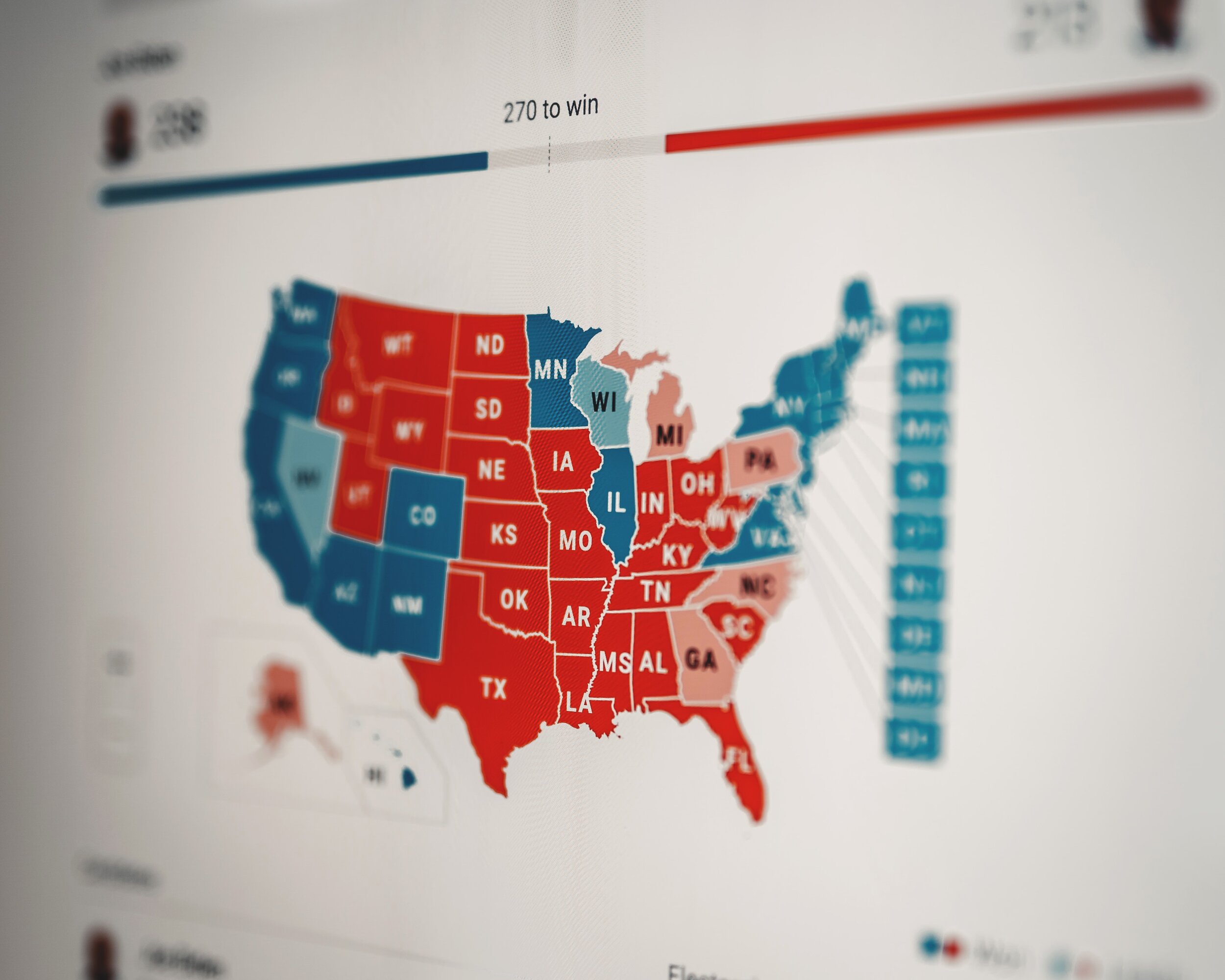Empathic Intelligence: What is and why it matters to our current state of division and polarization
EMPATHY. Is there another word more widely used and more incorrectly understood? I would bet a lot that there isn’t. Most of us understand empathy to be something akin to a warm blanket; the idea that to be truly empathic we must be able to place ourselves in someone else’s shoes, to understand what it is to be them, to feel what they feel, or to understand why they think what they do. If you read almost any psychology article or tome, the above definition has a prominent place within it.
It is important to note, however, that any exploration of empathy and its application to culture and society is insufficient if understood as an ability to know what another is thinking or feeling based solely on how we think or feel ourselves. Yet that is precisely what we are told to do. Real empathy is in fact anything but a self-centered approach to understanding what it means to be someone else. Rather, it is an introspection that allows us to reflect on the experience of another in service of gaining guidance to action. It allows us to work through the mass of stored, embodied, and often unconscious memories to seek and make significance out of them. Finally, it allows us to identify the differences between ourselves – in other words, empathy as spectator – and the exact people we seek to empathize about. Through empathy, we are able to begin the process of perspective giving and perspective-taking to understand how the experiences of others are both related to our own experiences and at the same time completely devoid of them. This is what distinguishes an empathic response from a sympathetic one, between things that motivate us to act on someone else’s behalf rather than simply feeling bad about what it is they are experiencing.
It is important to note, however, that any exploration of empathy and its application in culture and society is insufficient if understood as an ability to know what another is thinking or feeling based solely on how we think or feel ourselves.
So how then is empathy different from Empathic Intelligence? Depending on who you ask, and there are few out there who can truly call themselves Empathic Intelligence experts, quite a lot.
The origin of the word empathy dates back to the 1880s when German psychologist Theodore Lipps coined the term “einfuhlung” (literally, “in-feeling”) to describe the emotional appreciation of another’s feelings. Empathy has further been described as the process of understanding a person’s subjective experience by vicariously sharing that experience while maintaining a distant posture.
The work of Antonio Damasio, director of the USC Brain and Creativity Institute, and an internationally recognized neuroscientist, supports this differentiation. According to Damasio, an empathically intelligent person is not only able to perceive the emotions, feelings, and perspectives of others, they are able to harness complex intellectual and interpersonal skills primarily for the benefit of meeting others’ needs. Such intelligence allows them to consider options that on the surface might seem detrimental to their own circumstances. While empathic intelligence attempts to capture something of the resonance of human connection and relationships, it acknowledges the necessity for people themselves to observe, feel, intuit, think, introspect, imagine and test their own assumptions while being mindful of that fact that to do so might highlight their own complicity. As a result, empathically intelligent people grow in their commitment to the well-being and development of both self and others and see them as things not mutually exclusive. What develops is a sophisticated ability to decenter oneself in the decision-making process. In other words, with Empathic Intelligence, we are able to place the needs of others above ourselves without feeling as if our own needs are jeopardized in the process.
Can you see how this has relevance to the great debates going on today? Let’s explore this in more detail.
We hear almost daily that our current state of division and polarization is grounded in a win-lose, right-wrong, black-white (literally and figuratively) dynamic. It stems from the idea that one group’s rise – in equality, rights, freedoms, economic status, etc. – comes at the expense of that status for others. It essentially comes from the single pie concept: that every slice someone else gets means less pie for me. But what if that very idea is in error, and that we are divided over a concept that has little to do with our everyday ability to flourish, but rather our misguided understanding of what it means to live for the social good.
…empathically intelligent people grow in their commitment to the well-being and development of both self and others and see them as things not mutually exclusive.
A recent study of the people who participated in the January 6th storming of the U.S. Capitol underscores this very phenomenon. After a group of approximately 800 Americans stormed the U.S. Capitol to protest what they believed was a stolen and fraudulent election, many people made quick assumptions about who the insurrectionists were. The assumption was that those who stormed the Capitol building were from far-right or white nationalist groups hailing from largely red or majority-Republican counties and states. That assumption could not have been farther from the truth. What the study, The Face of American Insurrection by the Chicago Project on Security and Threats (CPOST), actually found is that the counties that had the greatest decline in White population had a 6 times higher chance of having one of their residents travel to D.C. (though this was not necessarily to say that those individuals participated in the attack on the Capitol building). One driver, however, did overwhelmingly stand out: “fear of the ‘Great Replacement’, a theory that holds that minorities are progressively replacing White populations due to mass immigration policies and low birthrates…a theory that might help explain why such a high percentage of the rioters hail from counties with fast-rising, non-White populations.”
So what does this have to do with Empathic Intelligence? Actually a lot.
If we were a country grounded in empathy, or dare I say one led by Empathic Intelligence, the concept of the Great Replacement wouldn’t have need to exist. We wouldn’t see the rise of minority groups as a threat to those in the majority. And there wouldn’t be a strong need to believe in the theories that effectively pit us against each other. Empathic Intelligence would instead compel us to ask, how might my status – regardless of racial, economic, or even gendered position – influence that of others? How might I be helping, or not helping other groups to achieve as I have? And why do I believe that their rise threatens my position at all? And while I am inclined to add the question, “can’t we all just get along”, our lack of Empathic Intelligence as a nation already provides the answer to that very question. “No!”
The assumption was that those who stormed the Capitol building were from far-right or white nationalist groups hailing from largely red or majority-Republican counties and states. That assumption could not have been farther from the truth.
One thing we do know is that in empathically intelligent societies people are more inclined to work to promote social and economic well-being. In fact, the greater the Empathic Intelligence, the greater communal harmony, commitment to democratic norms, and protection of the public good that society has. In communities that promote it, one can find higher levels of social engagement and prosocial behavior, in other words, the actions people take that benefit others and society as a whole.
And the opposite is equally true. Where there is an extreme lack of Empathic Intelligence, groups lack empathic accuracy and feel fearful of changing social conditions. As a result, they can become so unfeeling of those different than them that socially harmful behaviors such as racism, intergroup violence, and genocide can become sanctioned and institutionalized.
It takes only a moment of reflection to recognize that we are part of an interconnected web – we are, in fact, part of an infinite number of interconnected relationships and systems. Though invisible, the fact that we are interconnected leads to one undeniable fact: that to flourish together we must be willing to give up some of what we want for ourselves and the people just like us as an offering to others. And to do that requires a large dose of Empathic Intelligence – in ourselves and in society at large. Empathic Intelligence allows us to not only recognize these connections but identify our own position in and contributions to the challenges that exist for people unlike us. And to want to do something about it.
So, are you someone who considers him or herself empathically intelligent? If so, you might want to ask yourself: What motivates my beliefs and actions when it comes to the circumstances of others? Do my beliefs and actions reflect a selfless posture or do I center my own thoughts, needs and desires? It might also be helpful to ask yourself these questions in different moments. On different days. With different issues. You might just find you are less empathically intelligent than you thought. The good thing is, Empathic Intelligence can be learned. And it also happens to be really contagious. Great news for a nation on the brink of catastrophic levels of polarization.
To ignore our current state, and not address it with a prescription equal to its disease, takes us even further away from what it means to flourish as a society. We can also not presume it will simply blow over. As Robert Pape, CPOST Director shared in his April 2021 op-ed, “the ingredients [already] exist for future waves of political violence, lone-wolf attacks, and all-out assaults on democracy.”













